34 COMMON ESTATE PLANNING TRAPS
AND HOW TO AVOID THEM
Our Family Helping Your Family
34 COMMON ESTATE
PLANNING TRAPS
AND HOW TO AVOID THEM
It will ensure your assets pass to the people you want to benefit and to
the causes and organizations that matter to you. It can minimize probate
costs, reduce taxes, and insulate inheritances from creditors. It can provide a
succession plan for a family business. It can protect you if you are incapacitated, ease the emotional burdens on your family, and give you great peace of mind.
In contrast, lack of an estate plan or an ill-conceived estate plan may mean that taxes and fees eat deeply into your estate, probate drags on, the wrong people inherit, and your family suffers turmoil. Many families have been destroyed by bickering over what a departed loved one would have wanted when he or she left no estate plan or a defective one. You play a crucial role in developing a good estate plan. You have to take the initiative to find the right estate planning professional to work with. And you need to be engaged in the planning process every step of the way. One of the most important things you can do is educate yourself. Although you do not need to understand all the technicalities involved in estate planning, you need a basic understanding of what can be achieved given the extent of your estate and the needs of your loved ones. Moreover, you need to know how to avoid common pitfalls that have bedeviled people from all walks of life, from the rich and famous to those of modest means.
Here are the 34 Common traps
A. NEGLECT, AVOIDANCE, AND PROCRASTINATION
#1. Thinking you don’t need a will, trust, or other estate planning documents.
#2. Putting off estate planning because you are not ready to make the necessary decisions.
#3. Believing you are too young to need an estate plan.
#4. Delaying estate planning because you and your spouse or partner do not agree.
#5. Delaying estate planning until it’s too late for you to make a plan.
B. DO IT YOURSELF DISASTERS
#6. Relying on a handwritten will or letter expressing your wishes.
#7. Drafting your own will.
#8. Relying on a will or trust kit you purchased at a store or on the internet.
#9. Attempting to dispose of property in your will that is not part of your estate.
#10. Not executing your estate planning documents with the legally required formalities.
#11. Attempting to revise or amend your estate planning documents yourself.
C. MISSTEPS WITH BENEFICIARY DESIGNATIONS
#12. Naming your estate as a beneficiary of your retirement accounts.
#13. Naming your estate as a beneficiary of your life insurance.
#14. Failing to coordinate your beneficiary designations with your will or living trust
D. POOR PLANNING FOR YOUNG OR SPECIAL NEEDS BENEFICIARIES
#15. Naming a minor as an outright beneficiary of a will, trust, life insurance policy, or retirement account.
#16. Disbursing funds from trusts to immature young adult beneficiaries.
#17. Leaving an inheritance directly to a special needs individual.
E. IGNORING THE POSSIBILITY OF YOUR OWN INCAPACITY
#18. Not having a living will and medical power of attorney.
#19. Not having a financial power of attorney.
F. TAX BLUNDERS FOR THOSE WITH SUBSTANTIAL ESTATES
#20. Not doing any planning to reduce estate taxes.
#21. Not planning for how to pay estate taxes.
#22. Not maximizing annual tax-free gifts.
#23. Owning your life insurance policy.
G. NEGLECTING TO MAINTAIN YOUR ESTATE PLAN
#24. Not reviewing and revising your estate plan at regular intervals or after significant life changes.
#25. Forgetting to update beneficiary designations on life insurance and retirement accounts.
#26. Leaving a living trust unfunded.
#27. Failing to destroy prior estate planning documents.
H. OTHER COMMON OVERSIGHTS AND OMISSIONS
#28. Not addressing digital assets.
#29. Failing to name alternates.
#30. Not telling anyone where you keep your estate planning documents.
#31. Not planning for burial or cremation logistics.
#32. Not planning for pets.
I. RELYING ON THE WRONG PEOPLE
#33. Choosing the wrong person to act as your executor, trustee, or agent.
#34. Choosing the wrong lawyer to write your estate plan.
Want More Detail?
If you would like further detail on the 34 Common Estate Planning Traps And How To Avoid Them, Legacy Leagl Services has a complementary E-book (see below) that you can have and take with you. If you would like to send us a message or schedule some time to take advantage of our complementary consultation to learn more about how Alabama Elder, Probate, and Estate Planning laws, that also covers Trust and Wills can impacts your situation; don’t hesitate to connect! Having an Estate Plan in place is one of the most important actions you can take to protect your family’s financial future.
34 common estate planning traps
and how to avoid them
Other Practice Areas
Receive A Complementary Estate Planning Consultation


